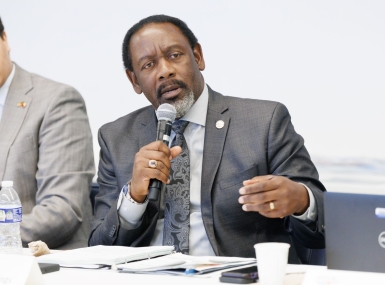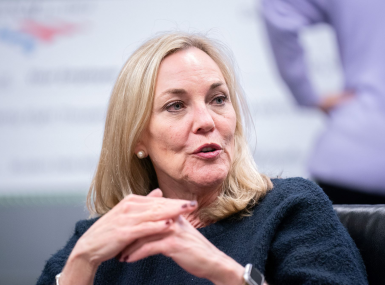Administration on Children and Families releases final rule on child welfare placements for LGBTQI+ youth
Author

Rachel Mackey
Upcoming Events
Related News

Key Takeaways
On April 30, the U.S. Department of Human Services Administration on Children and Families (ACF) issued a final rule on Designated Placement Requirements Under Titles IV-E and IV-B for LGBTQI+ Children, first proposed in September 2023. The final rule defines the characteristics of a Designated Placement that can meet the unique needs of youth in care who identify as LGBTQI+ and requires child welfare agencies to ensure there establish processes for youth to request, and have sufficient access to, such settings.
To qualify as a Designated Placement under the new regulation, a provider must:
- Commit to establishing an environment that supports the child’s status or identity;
- Be trained with the appropriate knowledge and skills to provide for the needs of the child related to the child's self-identified sexual orientation, gender identity, and gender expression; and
- Facilitate the child’s access to age-or-developmentally appropriate resources, services, and activities that support their health and well-being.
Key highlights: In response to significant feedback, the final rule clarifies that agencies will have discretion in how to weigh requests for Designated Placements against other priorities for serving the best interest of the child. Additionally, it creates a pathway for agencies to offer services to LGBTQI+ youth who have requested a Designated Placement in order to preserve placement stability. The final rule also includes explicit language prohibiting retaliation against providers who do not opt into the Designated Placement classification and reiterates protections for youth who disclose their status.
What it means for counties: County governments are tasked with administering the child welfare system in California, Colorado, Ohio, New York, North Carolina, North Dakota, Minnesota, Virginia and Pennsylvania, with hybrid systems in Nevada and Wisconsin. Counties serving as child welfare agencies in these states will have until 2026 to implement a process, designed by their states, for training, certifying and providing access to Designated Placements as part of case plans.
NACo submitted comments on the proposed rule in November 2023 and will continue to monitor guidance and other developments related to the final rule's implementation.
Related News

County mental health advocates take issues to Capitol Hill
Members of NACo’s Mental Health and Wellbeing Commission aimed their advocacy efforts at the Due Process Continuity of Care Act, the Institutions for Mental Diseases exclusion and reauthorizing the SUPPORT Act when visiting Capitol Hill May 2.

Commission co-chairs discuss how counties can better treat mental health
Kathryn Barger and Dow Constantine have reflected on challenges and successes in Los Angeles County, Calif. and King County, Wash. to help guide the work of NACo’s Commission on Mental Health and Well-Being.
Advocacy
NACo submits comments on proposed rules regarding new foster care requirements and strengthening TANF
On November 27 and December 1, NACo submitted comments on two Notices of Proposed Rulemaking from the U.S. Department of Health and Human Services Administration for Children and Families that would impact county administration of federal child welfare and anti-poverty programs.

